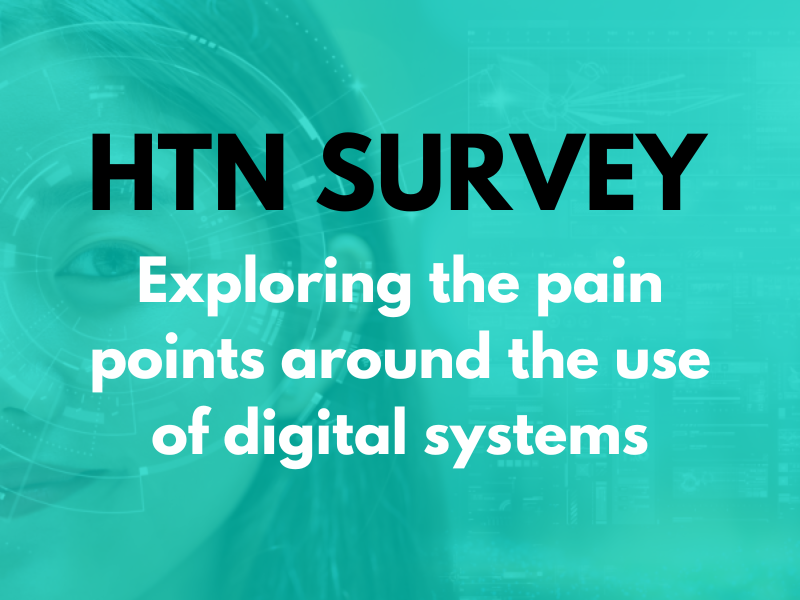Welcome to our first news in brief round-up for February. This week has already seen HTN HQ announce the Health Tech Awards 2022 – now open for entries – while, in other news, the Department of Health and Social Care has published a ‘prior information notice’ for its Tech Innovation Framework.
The second month of the year has clearly gotten off to a flying start, so here’s the rest of the headlines to keep you up to date on the latest developments in health tech…
Royal Papworth introduces GP Connect
Royal Papworth Hospital NHS Foundation Trust has launched a new digital platform called GP Connect.
The platform allows authorised hospital staff to ‘view a patient’s full GP record from any practice in England’. This includes enabling them to see information such as appointments, medications, vaccinations, referrals and more.
Patients can opt not to share their data, which is managed by the GP Practice, and practices can also opt to not to share any of their patient records.
Anne Dorrell, Royal Papworth Hospital Project Manager, said: “If a patient has consented, GP Connect shows a complete view of their GP record, available across different IT systems. This is an exciting step forward to collaborate with GPs across England to provide excellent care through higher data quality. We are the first trust to roll this out for Lorenzo, which is our electronic patient record system, and will now be leading the way for other organisations.”
Joined-up health and care records for the Black Country and West Birmingham
Joined-up health and care records will be introduced to the Black Country and West Birmingham NHS Clinical Commissioning Group (CCG) in spring 2022.
One Health and Care, the name of this new NHS shared care record, will bring together all the separate records held by different local providers of health and social care – including hospitals and GPs – in ‘one secure, easy to read format’.
It will mean that a doctor in a hospital, or a paramedic responding to a 999 call, will be able to access the same information as the person’s GP. This could include information such as allergies and current medications and could enable healthcare professionals to make ‘faster, safer decisions’ about treatment.
One Health and Care will also flag any additional needs a patient may have, such as difficulty with communication. The information will also only be viewable through existing clinical systems.
Mike Hastings, Digital Lead for the Black Country and West Birmingham Integrated Care System, said: “This exciting project is all about providing safe, efficient, joined-up care and ensuring that professionals get the same view of their patients’ information no matter where in the Black Country and West Birmingham they are caring for them.”
Review of remote robotic surgery research
Researchers at the School of Biomedical Engineering & Imaging Sciences at King’s College London (KCL) have conducted a literature review into remote robotic surgery.
The review looks into what is ‘currently preventing the proliferation of robotic procedures, specifically their use in image-guided interventional procedures in the brain’ and at the key criteria for future success. The team specifically focused on ‘applications of robotic systems in interventional neuroradiology – image-guided interventional procedures using devices in the blood vessels to treat diseases in the brain’.
Published in the Journal of Neurointerventional Surgery, the research identified that the robotic systems ‘can only do one small part of the interventional neuroradiology procedure’, thereby requiring a ‘disproportionate amount of human input’.
The researchers are currently designing and building a robot that could perform mechanical thrombectomy – including both a controller and a catheter manipulating mechanism – to help overcome challenges.
Dr Thomas Booth, Senior Lecturer in Neuroimaging at the School of Biomedical Engineering & Imaging Sciences and Consultant Diagnostic and Interventional Neuroradiologist at King’s College Hospital, commented: “As shown by the systematic review, robots in interventional neuroradiology are in their infancy and there is a long way to go in the journey to make remote mechanical thrombectomy a reality. But we have the right groups of clinical and engineering experts to take this important step forwards.”
AI tool to help with heart failure diagnosis
Researchers at Imperial College London’s National Heart and Lung Institute (NHLI) and Centre for Cardiac Engineering have undertaken an NHS study into using artificial intelligence (AI) technology for ‘point-of-care detection of heart failure’.
It’s hoped the AI will be able to help improve the performance of ‘smart stethoscopes’ and enable doctors to ‘diagnose heart failure earlier’, thereby potentially improving patient outcomes.
Heart failure currently affects two per cent of the UK population and consumes four per cent of the NHS budget. Yet, reliably diagnosing heart failure can be a challenge for GPs, with symptoms – such as breathlessness – associated with many other conditions. Most patients are diagnosed in hospital, which Imperial College Healthcare NHS Trust says highlights the need for a ‘point-of-care screening tool’.
The new study was published in The Lancet Digital Health and recruited over 1,000 NHS patients across seven sites, including Imperial College Healthcare. Researchers designed a ‘novel AI algorithm’ that ‘determines within 15 seconds whether the pumping action of the heart is weakened’ and combined it with a ‘smart’ stethoscope – the Eko DUO device – that records electrocardiograms (ECGs) and heart sounds, enabling an immediate diagnosis.
It was found that the AI technology showed ’91 per cent sensitivity and 80 per cent specificity’ when compared to routine diagnostic tests.
Dr Patrik Bachtiger, a Clinical Research Fellow in Digital Health at the NHLI and lead author of the paper, said: “This super-human capability to screen patients at any point of care, including the GP surgery, can overcome the unacceptable reality that 80 per cent of patients with heart failure are currently diagnosed through an emergency hospital admission. The current clinical pathway simply misses too many patients, leaving them undiagnosed until very sick. This tool can save time and money for the NHS and unlock major benefits for patients through early diagnosis and starting effective treatments.”
Glasgow University opens Arc
The University of Glasgow has now opened the ARC (Advanced Research Centre), its new flagship research facility, and welcomed its first researchers through the doors.
A £116 million, 16,000 metre-square building, it will be the new home for a ‘collaborative community of academics’ across a range of disciplines.
Expected to be fully operational from spring 2022, the centre will bring people together ‘in new ways’, and encourage the exploration of cross-disciplinary concepts, as well as innovation with industry partners.
Research will include digital chemistry, quantum and nanotechnology, AI, and technology touching life.
Professor Andrew Tobin, Director of the ARC, noted: “Once the building is fully operational we will have a diverse range of disciplines sharing one space, the potential cannot be over-estimated. Beyond that we have also created new spaces to support colleagues across the campus to realise their research, innovation and engagement ambitions, spaces which can support creativity, conferences, networking and collaboration.”
Scotland’s new app for free period products
The Scottish Government has announced the launch of a new app which will provide people with access to free period products.
Called PickupMyPeriod, the application connects to over 700 venues across Scotland, allowing users to identify where they can find the products they need.
Social Justice Secretary Shona Robison said: “The app is a fantastic tool that will help everyone who wants to access free period products for themselves, a family member or friend to easily find them in many places across Scotland.
“I’m thankful for the support of local authorities in the implementation of access to free period products in Scotland. Young women and girls have been crucial in developing the best ways to access products to meet their needs and I’m grateful to them for sharing their views.”
New mental health website for children in Herefordshire and Worcestershire
A new website has been developed to support the mental health of children and young people in Herefordshire and Worcestershire.
The site, which was created in collaboration with professionals from child and adolescent mental health services (CAMHS) at Herefordshire and Worcestershire Health and Care NHS Trust, points to services, information, practical tips and support, as well as acting as a ‘one stop shop’ for patients, families and mental health experts.
Elaine Cook-Tippins, CAMHS Service Manager said: “Throughout the design and launch of our new CAMHS website, young people have been at the forefront of our minds.
“The insight and feedback received from young people and service users was invaluable, giving a fresh perspective to the website’s development.”
New Turing Artificial Intelligence World-Leading Researcher Fellows to be funded
UK Research and Innovation (UKRI) is set to announce new funding opportunities for a fresh cohort of Turing Artificial Intelligence (AI) World-Leading Researcher Fellows.
The investment will double the number of current fellows, following an announcement of the funding by Chancellor Rishi Sunak. Five fellows were announced last year and the scheme aims to help to ‘retain and attract’ some of the best international research talent in AI.





